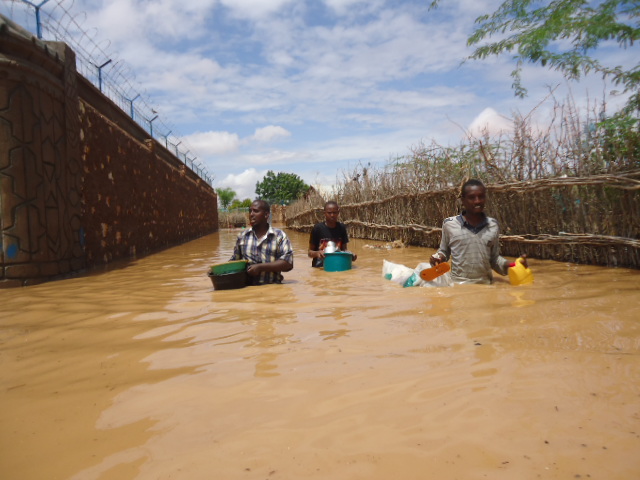UNESCO, UNDP, BAZ, and Transmedia support community resilience in Zimbabwe
The partnership to address community resilience is being forged through UNESCO’s Bungwe Pungwe and Save (BuPuSa) Project and UNDP’s Climate Adaptation Water and Energy Project (CAWEP).

UNESCO, UNDP, the Broadcasting Authority of Zimbabwe (BAZ), and Transmedia Corporation, are collaborating to bring transformative change in addressing community resilience in selected hard to reach and cyclone and flood-prone areas of Chipinge district in Zimbabwe.
The partnership to address community resilience is being forged through UNESCO’s Bungwe Pungwe and Save (BuPuSa) Project and UNDP’s Climate Adaptation Water and Energy Project (CAWEP). The two projects seek to mitigate the vulnerability of communities to cyclones and floods by implementing a multifaceted approach encompassing flood risk assessment, monitoring, early warning systems, and inclusive communication strategies.
UNESCO is engaged in supporting Ndau community radio as a platform for empowering communities in Chipinge District with the necessary infrastructure and resources for effective early warning communication and resilience-building efforts. UNDP is engaged in supporting energy projects such as the establishment of solar mini grids and mini biogas plants.
The partnership involves collaboration in solarizing Transmedia telecommunication towers to support early warning communication and enhance Internet penetration to communities which are currently not benefiting from national mobile telephone networks.
The Broadcasting Authority of Zimbabwe (BAZ) is contributing to the partnership with technical support to FM radio broadcasting and capacity building of local community radio stations in addressing climate change impact.
Mr. Kumbana also said that before the community radio project was initiated, they used to listen to Mozambican radios and use Mozambican simcards.
Garahwa village is located in the southern most part of Manicaland province. The village has roads which are impassable during heavy rain periods. The village is also devoid of mobile communication infrastructure which puts residents of that area at a disadvantage when it comes to contribution to the national and global economy.
Collaboration between UNESCO, UNDP, Transmedia Corporation and BAZ underscores the importance of building partnerships for sustainable development, especially to citizens living in rural areas.
Agenda 2030 calls for cooperation among multilateral organisations, donors, public and private sector to provide developing countries and beneficiary communities with technologies that increase efficiency in the use of natural resources, generate low waste, treat the generated pollution, and mitigate climate change.
ALSO READ
UNESCO discusses reshaping Sudan's education landscape amid current emergency
UNESCO needed to work towards protecting Sudanese heritage amid a year of conflict
UNESCO supports Sudan in assessing conflict's impacts on cultural heritage
Network of UNESCO Chairs welcomes a new Chair on Intangible Cultural Heritage in Public and Global Governance
Thailand's capital city Bangkok joins UNESCO Global Network of Learning Cities










